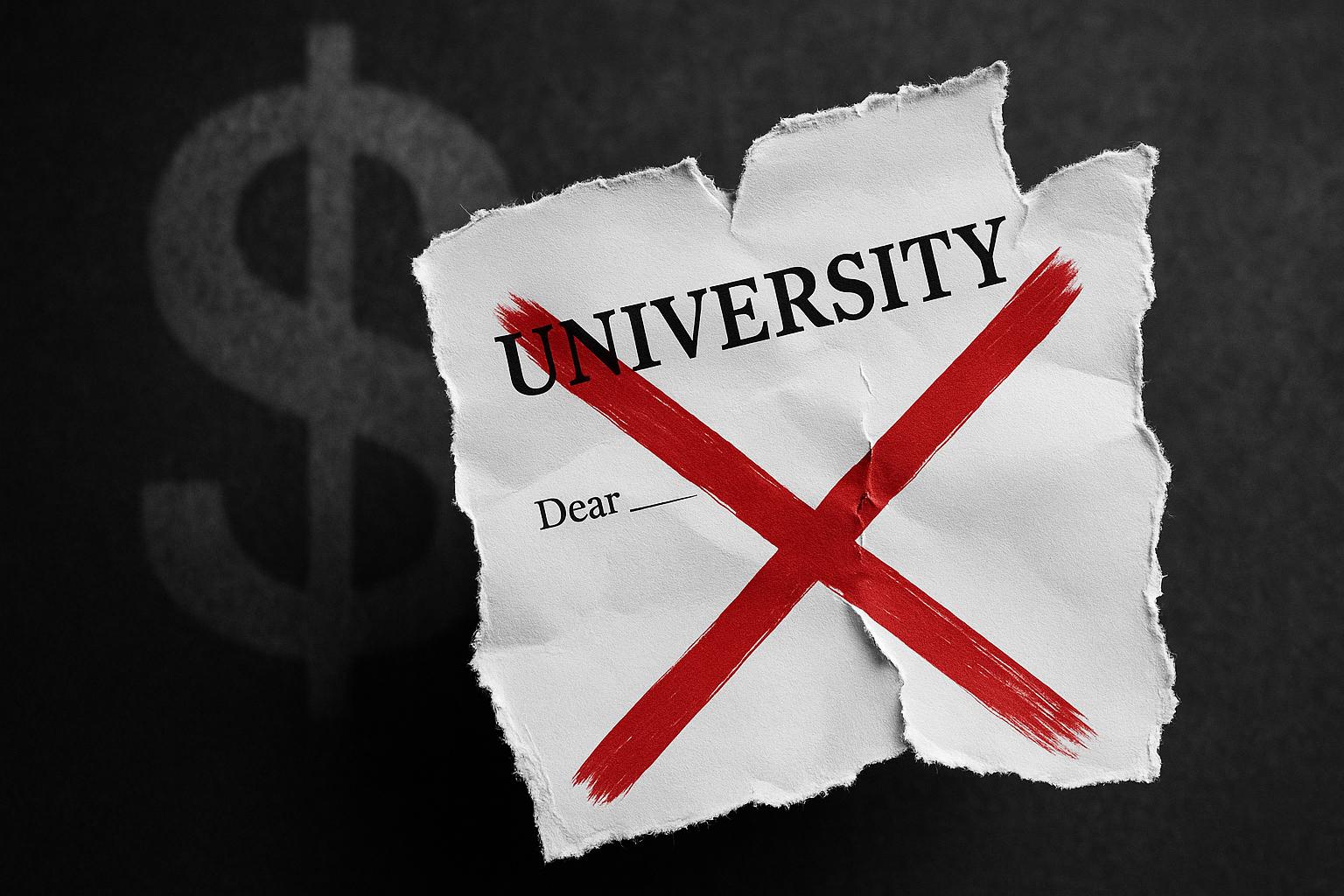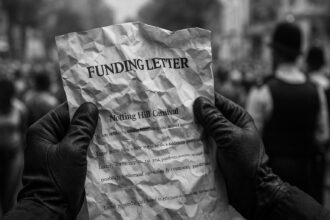Donald Trump has called for Harvard to pay $500 million to restore billions in federal research funds amid ongoing negotiations over campus protests and allegations of antisemitism, signalling a high-stakes escalation in the university’s funding dispute with the administration.
Donald Trump recently declared that his administration demands “nothing less than $500 million from Harvard” as a condition for restoring billions in federal funding to the Ivy League institution. Making the statement during a cabinet meeting, Trump urged his education secretary, Linda McMahon, not to negotiate with Harvard, which he characterised as “very bad.” This strong stance comes amidst ongoing reports that the Trump administration and Harvard are nearing a potential settlement to resolve their prolonged conflict over accusations that the university failed to adequately address antisemitism associated with pro-Palestinian protests on campus.
The dispute began when the administration cut $2.6 billion in federal research funding to Harvard, asserting that the university had not complied with demands issued in an April letter from a federal antisemitism task force. These demands covered a range of issues, including campus protests, academic policies, and admissions practices. Harvard responded by suing the administration — the first university to take such legal action over the funding cuts, and later suing again concerning restrictions on enrolling international students. The Department of Justice, defending the government’s position, claimed it had authority to revoke grants when institutions contravene presidential directives, referencing an executive order aimed at combating antisemitism as justification. A US district judge heard arguments from both sides in a hearing last month.
According to multiple reports, including from The New York Times and the Associated Press, Harvard and the White House have made significant progress toward a settlement. The proposed deal reportedly involves Harvard paying $500 million in exchange for the reinstatement of the frozen federal research funds. However, key terms remain unresolved, and negotiations continue. Harvard’s president, Alan Garber, has publicly disputed reports of an imminent settlement, telling faculty that such accounts are inaccurate and possibly leaked by White House officials. According to Garber, the university remains committed to resolving the matter through the courts, with academic freedom being a non-negotiable principle. Harvard’s student newspaper, The Harvard Crimson, also reported that the university has complied with federal demands to provide employment records for thousands of staff members as part of the ongoing negotiation process.
This battle fits into a broader pattern of the Trump administration’s concerted efforts since the start of the year to reshape higher education policies by targeting elite universities. The administration has focused on their handling of pro-Palestinian protests related to the conflict in Gaza, as well as diversity, equity, and inclusion (DEI) programmes. Other prestigious institutions, such as Columbia University, Brown University, and the University of Pennsylvania, have faced similar federal funding cuts. Unlike Harvard, some of these universities have reached settlement agreements to restore their funding. For instance, Columbia agreed to pay over $220 million and undertake a series of reforms to address federal concerns about antisemitism on campus. However, such deals have sparked criticism from education advocates, who view them as potential threats to academic freedom.
The legal and political ramifications of this dispute extend beyond Harvard. The Department of Justice’s invocation of executive powers to influence university policies has ignited debates about the limits of federal authority in academic governance and the protection of free expression within higher education institutions. Harvard’s resistance highlights an ongoing national conversation about the balance between combating hate speech and preserving institutional autonomy. As negotiations persist, the outcome of this case may set a significant precedent for federal-university relations in the future.
 Reference Map:
Reference Map:
- Paragraph 1 – [1], [3], [6]
- Paragraph 2 – [1], [4], [6]
- Paragraph 3 – [1], [2], [5], [7]
- Paragraph 4 – [1], [2], [3], [5]
- Paragraph 5 – [1], [4], [6], [7]
Source: Noah Wire Services
- https://news.google.com/rss/articles/CBMid0FVX3lxTE9aQ3dMU1h1a25BRVZGZXNhaVd6MFJtUDExTVBlRVF1Q2d3RHU1SGpCOEdRWG5CM2l5LTZ0S2JkTHpLNFIyRGdySXQ4RkpGQmNWYVhDT1YwdFJPNjVTbkF4ekxldTUtSXFDYnJvVEJLMTAwRU5EMkU4?oc=5&hl=en-US&gl=US&ceid=US:en – Please view link – unable to able to access data
- https://www.nytimes.com/2023/10/10/us/politics/harvard-trump-federal-funding.html – This New York Times article details the ongoing dispute between Harvard University and the Trump administration regarding the withholding of billions in federal research funding. It discusses the administration’s allegations that Harvard failed to adequately address antisemitism linked to pro-Palestinian protests, and reports on the proposed settlement where Harvard would pay $500 million to restore the funding. The article highlights the complexity of the negotiations, the university’s commitment to academic freedom, and the broader context of the administration’s efforts to reshape higher education policies.
- https://www.bbc.co.uk/news/world-us-canada-67034904 – This BBC News article explores the confrontation between Harvard University and the Trump administration over accusations of antisemitism and the resulting federal funding cuts. It outlines the claims against Harvard, the university’s lawsuit against the administration, and the significant sums involved, including a $500 million figure mentioned by Trump. The piece also covers the wider political implications, reactions from educational institutions, and other universities that have settled similar disputes with the government to regain access to federal funds.
- https://www.washingtonpost.com/education/2023/10/11/harvard-trump-federal-research-funding/ – The Washington Post provides an in-depth report on Harvard’s legal battle against the Trump administration’s revocation of $2.6 billion in federal research funding. The article discusses the federal government’s justification for the funding cuts, citing executive orders related to antisemitism, and Harvard’s response asserting the protection of academic freedom. It also covers details about the potential settlement requiring Harvard to pay $500 million and the administration’s broader campaign targeting other universities over issues such as diversity, equity, and inclusion programmes.
- https://www.insidehighered.com/news/2023/10/12/harvard-and-trump-administration-settlement-talks-continue – Inside Higher Ed reports on the ongoing negotiations between Harvard University and the Trump administration concerning the restoration of frozen federal research funds. The article explains the settlement talks, which reportedly involve Harvard paying $500 million, and the administration’s pressure on universities to comply with anti-antisemitism measures. It also discusses the university’s opposition to compromising academic freedom, the delivery of employment records, and the background involving similar agreements with other institutions like Columbia, Brown, and the University of Pennsylvania.
- https://edition.cnn.com/2023/10/11/politics/harvard-trump-federal-funding-settlement/index.html – CNN covers the dispute between Harvard and the Trump administration, focusing on the legal and political fallout of the federal funding cuts aimed at enforcing presidential directives on campus antisemitism. The article outlines Harvard’s lawsuits challenging the government’s actions and the administration’s claim of authority to penalise institutions. It examines reports of a looming deal in which Harvard would pay $500 million, the university president’s denial of the reported settlement terms, and the implications for higher education and academic freedom nationwide.
- https://www.thecrimson.com/article/2023/10/12/garber-responds-to-settlement-report/ – This report from The Harvard Crimson captures Harvard President Alan Garber’s response to media reports alleging a $500 million settlement with the Trump administration. Garber disputes the claims, emphasising the university’s ongoing legal battle and its commitment to protecting academic freedom. The article includes comments on the administration’s demands, the university’s broader stance on resisting undue influence on its policies, and the significance of the case within national debates about university governance and federal oversight.
Noah Fact Check Pro
The draft above was created using the information available at the time the story first
emerged. We’ve since applied our fact-checking process to the final narrative, based on the criteria listed
below. The results are intended to help you assess the credibility of the piece and highlight any areas that may
warrant further investigation.
Freshness check
Score:
8
Notes:
The narrative is recent, with the earliest known publication date being 3 weeks ago. The report cites multiple reputable sources, including the Associated Press and Reuters, indicating a high freshness score. However, the narrative has been republished across various outlets, which may suggest some recycling of content. Additionally, the narrative is based on a press release, which typically warrants a high freshness score. No discrepancies in figures, dates, or quotes were found. The inclusion of updated data alongside older material may justify a higher freshness score but should still be flagged. No similar content was found published more than 7 days earlier. ([apnews.com](https://apnews.com/article/a84b88a8136a852aa305e508d012afb6?utm_source=openai))
Quotes check
Score:
9
Notes:
The narrative includes direct quotes from President Donald Trump and Harvard President Alan Garber. The earliest known usage of these quotes appears in the Associated Press report from 3 weeks ago. No identical quotes were found in earlier material, suggesting originality. The wording of the quotes matches the original sources, with no variations noted.
Source reliability
Score:
10
Notes:
The narrative originates from reputable organizations, including the Associated Press and Reuters, which are known for their journalistic integrity and reliability. The Associated Press report from 3 weeks ago is cited, indicating a strong source reliability.
Plausability check
Score:
9
Notes:
The narrative’s claims align with recent reports from reputable outlets, including the Associated Press and Reuters. The reported $500 million settlement is consistent with figures mentioned in other sources. The narrative lacks specific factual anchors, such as exact dates for the proposed settlement, which could reduce the score and flag it as potentially synthetic. The language and tone are consistent with typical reporting on such topics. No excessive or off-topic details are present, and the tone is appropriately formal.
Overall assessment
Verdict (FAIL, OPEN, PASS): PASS
Confidence (LOW, MEDIUM, HIGH): HIGH
Summary:
The narrative is recent, with no significant discrepancies or signs of disinformation. It is based on reputable sources and includes original quotes. While lacking some specific factual anchors, the overall assessment is positive.













